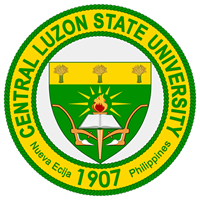- PublicStatus
- MediumResearch Output
- 12,837Total Students
- 502Faculty
- 7Int'l Students
Status
Whether the University is funded by the government of that country or state, or funded by private donations.
Whether the University is funded by the government of that country or state, or funded by private donations.
Research Output
The research intensity of the University, based on the number of papers output relative to the University’s size.
The research intensity of the University, based on the number of papers output relative to the University’s size.
Total Students
The number of full time equivalent students enrolled at the University.
The number of full time equivalent students enrolled at the University.
Faculty
The number of full time equivalent teaching staff employed by the University.
The number of full time equivalent teaching staff employed by the University.
Int'l Students
The number of full time equivalent international students enrolled at the University.
The number of full time equivalent international students enrolled at the University.
Central Luzon State University
About
Read more
Read less
The Central Luzon State University (CLSU), one of the renowned and prestigious state-institutions of higher learning in the Philippines, is the lead agency of the Science City of Muñoz’s Science Community and seat of the Central Luzon Agriculture, Aquatic and Resources Research and Development Consortium (CLAARRDEC).
It started as a farm school, the Central Luzon Agricultural School (CLAS), on April 12, 1907 wherein the students learned the rudiments of better farming methods, agricultural mechanics and homemaking arts. These activities soon evolved into a model vocational-agricultural teaching and learning program which became its legacy.
CLAS was converted into the Central Luzon Agricultural College (CLAC) on December 31, 1950, the first state institution in the country to offer a four-year curriculum for training teachers of vocational agriculture and eventually became known as “the mother of vocational agricultural schools” in the Philippines.
CLAC became the Central Luzon State University on June 18, 1964 by virtue of Republic Act No. 4067. As embodied in its enabling act, the “University shall primarily give professional and technical training in agriculture and mechanic arts besides providing advanced instruction and promoting research in literature, philosophy, the sciences, technology and art”.
To date, CLSU remains as one of the premier institutions of agriculture in Southeast Asia known for its breakthrough researches in aquatic culture (pioneer in the sex reversal of tilapia), ruminant, crops, orchard, and water management, living through its vision of becoming “a world-class National Research University for science and technology in agriculture and allied fields.”
Moreover, it was designated by the Commission on Higher Education (CHED) – National Agriculture and Fisheries Education System (NAFES) as National University College of Agriculture (NUCA) and National University College of Fisheries (NUCF). Similarly, designated as CHED Center of Excellence (COE) in Agriculture, Agricultural Engineering, Biology, Fisheries, Teacher Education, and Veterinary Medicine - the most number of COEs in Central and Northern Luzon Regions. It is likewise designated as the Center of Research Excellence in Small Ruminants by the Philippine Council for Agriculture, Aquaculture, Forestry and Natural Resources Research and Development - Department of Science and Technology (PCAARRD-DOST). Also designated by the Department of Environment and Natural Resources (DENR) as the Regional Integrated Coastal Resources Management Center. Additionally, it was picked as the Model Agro-Tourism Site for Luzon.
CLSU stands out as the only comprehensive state university in the Philippines with the most number of curricular programs accredited by the Accrediting Agency of Chartered Colleges and Universities in the Philippines (AACCUP) with Level IV accreditation. The university is further declared Cultural Property of the Philippines with the code of PH-03-0027 due to its high historical, cultural, academic, and agricultural importance to the nation.
It started as a farm school, the Central Luzon Agricultural School (CLAS), on April 12, 1907 wherein the students learned the rudiments of better farming methods, agricultural mechanics and homemaking arts. These activities soon evolved into a model vocational-agricultural teaching and learning program which became its legacy.
CLAS was converted into the Central Luzon Agricultural College (CLAC) on December 31, 1950, the first state institution in the country to offer a four-year curriculum for training teachers of vocational agriculture and eventually became known as “the mother of vocational agricultural schools” in the Philippines.
CLAC became the Central Luzon State University on June 18, 1964 by virtue of Republic Act No. 4067. As embodied in its enabling act, the “University shall primarily give professional and technical training in agriculture and mechanic arts besides providing advanced instruction and promoting research in literature, philosophy, the sciences, technology and art”.
To date, CLSU remains as one of the premier institutions of agriculture in Southeast Asia known for its breakthrough researches in aquatic culture (pioneer in the sex reversal of tilapia), ruminant, crops, orchard, and water management, living through its vision of becoming “a world-class National Research University for science and technology in agriculture and allied fields.”
Moreover, it was designated by the Commission on Higher Education (CHED) – National Agriculture and Fisheries Education System (NAFES) as National University College of Agriculture (NUCA) and National University College of Fisheries (NUCF). Similarly, designated as CHED Center of Excellence (COE) in Agriculture, Agricultural Engineering, Biology, Fisheries, Teacher Education, and Veterinary Medicine - the most number of COEs in Central and Northern Luzon Regions. It is likewise designated as the Center of Research Excellence in Small Ruminants by the Philippine Council for Agriculture, Aquaculture, Forestry and Natural Resources Research and Development - Department of Science and Technology (PCAARRD-DOST). Also designated by the Department of Environment and Natural Resources (DENR) as the Regional Integrated Coastal Resources Management Center. Additionally, it was picked as the Model Agro-Tourism Site for Luzon.
CLSU stands out as the only comprehensive state university in the Philippines with the most number of curricular programs accredited by the Accrediting Agency of Chartered Colleges and Universities in the Philippines (AACCUP) with Level IV accreditation. The university is further declared Cultural Property of the Philippines with the code of PH-03-0027 due to its high historical, cultural, academic, and agricultural importance to the nation.
About
The Central Luzon State University (CLSU), one of the renowned and prestigious state-institutions of higher learning in the Philippines, is the lead agency of the Science City of Muñoz’s Science Community and seat of the Central Luzon Agriculture, Aquatic and Resources Research and Development Consortium (CLAARRDEC).
It started as a farm school, the Central Luzon Agricultural School (CLAS), on April 12, 1907 wherein the students learned the rudiments of better farming methods, agricultural mechanics and homemaking arts. These activities soon evolved into a model vocational-agricultural teaching and learning program which became its legacy.
CLAS was converted into the Central Luzon Agricultural College (CLAC) on December 31, 1950, the first state institution in the country to offer a four-year curriculum for training teachers of vocational agriculture and eventually became known as “the mother of vocational agricultural schools” in the Philippines.
CLAC became the Central Luzon State University on June 18, 1964 by virtue of Republic Act No. 4067. As embodied in its enabling act, the “University shall primarily give professional and technical training in agriculture and mechanic arts besides providing advanced instruction and promoting research in literature, philosophy, the sciences, technology and art”.
To date, CLSU remains as one of the premier institutions of agriculture in Southeast Asia known for its breakthrough researches in aquatic culture (pioneer in the sex reversal of tilapia), ruminant, crops, orchard, and water management, living through its vision of becoming “a world-class National Research University for science and technology in agriculture and allied fields.”
Moreover, it was designated by the Commission on Higher Education (CHED) – National Agriculture and Fisheries Education System (NAFES) as National University College of Agriculture (NUCA) and National University College of Fisheries (NUCF). Similarly, designated as CHED Center of Excellence (COE) in Agriculture, Agricultural Engineering, Biology, Fisheries, Teacher Education, and Veterinary Medicine - the most number of COEs in Central and Northern Luzon Regions. It is likewise designated as the Center of Research Excellence in Small Ruminants by the Philippine Council for Agriculture, Aquaculture, Forestry and Natural Resources Research and Development - Department of Science and Technology (PCAARRD-DOST). Also designated by the Department of Environment and Natural Resources (DENR) as the Regional Integrated Coastal Resources Management Center. Additionally, it was picked as the Model Agro-Tourism Site for Luzon.
CLSU stands out as the only comprehensive state university in the Philippines with the most number of curricular programs accredited by the Accrediting Agency of Chartered Colleges and Universities in the Philippines (AACCUP) with Level IV accreditation. The university is further declared Cultural Property of the Philippines with the code of PH-03-0027 due to its high historical, cultural, academic, and agricultural importance to the nation.
It started as a farm school, the Central Luzon Agricultural School (CLAS), on April 12, 1907 wherein the students learned the rudiments of better farming methods, agricultural mechanics and homemaking arts. These activities soon evolved into a model vocational-agricultural teaching and learning program which became its legacy.
CLAS was converted into the Central Luzon Agricultural College (CLAC) on December 31, 1950, the first state institution in the country to offer a four-year curriculum for training teachers of vocational agriculture and eventually became known as “the mother of vocational agricultural schools” in the Philippines.
CLAC became the Central Luzon State University on June 18, 1964 by virtue of Republic Act No. 4067. As embodied in its enabling act, the “University shall primarily give professional and technical training in agriculture and mechanic arts besides providing advanced instruction and promoting research in literature, philosophy, the sciences, technology and art”.
To date, CLSU remains as one of the premier institutions of agriculture in Southeast Asia known for its breakthrough researches in aquatic culture (pioneer in the sex reversal of tilapia), ruminant, crops, orchard, and water management, living through its vision of becoming “a world-class National Research University for science and technology in agriculture and allied fields.”
Moreover, it was designated by the Commission on Higher Education (CHED) – National Agriculture and Fisheries Education System (NAFES) as National University College of Agriculture (NUCA) and National University College of Fisheries (NUCF). Similarly, designated as CHED Center of Excellence (COE) in Agriculture, Agricultural Engineering, Biology, Fisheries, Teacher Education, and Veterinary Medicine - the most number of COEs in Central and Northern Luzon Regions. It is likewise designated as the Center of Research Excellence in Small Ruminants by the Philippine Council for Agriculture, Aquaculture, Forestry and Natural Resources Research and Development - Department of Science and Technology (PCAARRD-DOST). Also designated by the Department of Environment and Natural Resources (DENR) as the Regional Integrated Coastal Resources Management Center. Additionally, it was picked as the Model Agro-Tourism Site for Luzon.
CLSU stands out as the only comprehensive state university in the Philippines with the most number of curricular programs accredited by the Accrediting Agency of Chartered Colleges and Universities in the Philippines (AACCUP) with Level IV accreditation. The university is further declared Cultural Property of the Philippines with the code of PH-03-0027 due to its high historical, cultural, academic, and agricultural importance to the nation.
University highlights
- 2023#=118
- 2025#=153
- 2026#=161
2026
QS Stars is a rating system that helps you select the right university based on your
interests. It provides a detailed look at an institution, identifying which universities rate highest in
the
specific topics that matter to you, like facilities, graduate employability, social responsibility,
inclusiveness, and more.
Similar Universities
Universidad de Guadalajara (UDG)
Av. Juárez 976, Col Centro 44100, Guadalajara
701-750 QS World University Rankings 4 QS starsMacromedia University of Applied Sciences
Mehringdamm 33, Berlin
Samara National Research University (Samara University)
34, Moskovskoe shosse St., Samara
4 QS starsUniversity of Texas Arlington
701 S. Nedderman Drive, Arlington
George Washington University School of Business
George Washington University, Washington D.C.
Related content

10 Most Affordable Cities fo…
By
Chloe
Lane
Updated
728
0

Top Universities in the Worl…
By
Sabrina
Collier
Updated
2.4k
0

Top Medical Schools in 2019
By
Belkis
Megraoui
Updated
1.9k
0

Top Universities for Economi…
By
Belkis
Megraoui
Updated
1.4k
0

Top Business Schools in 2019
By
Sabrina
Collier
Updated
1.5k
0

International Scholarships f…
By
Laura
T
Updated
710
0

Most Affordable Cities for S…
By
Belkis
Megraoui
Updated
1.4k
1

How to Get a Canadian Studen…
By
Hasna
Haidar
Updated
3.5k
0

Top Universities in Asia for…
By
Craig
OCallaghan
Updated
1.6k
0
Test preparations
Featured University


Sponsored
438
QS World University Rankings
-
10 UG & 47 PGTotal courses
-
Private for ProfitStatus
-
HighResearch output
Central Luzon State University
basic
Public
Medium
26
no
7
L
EN

















